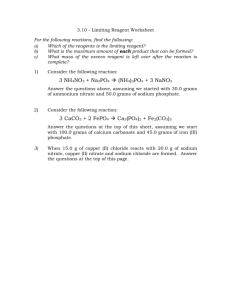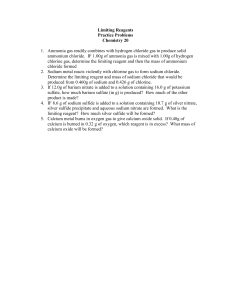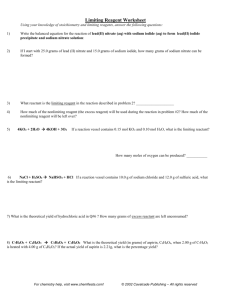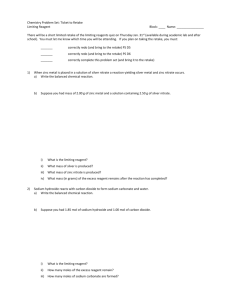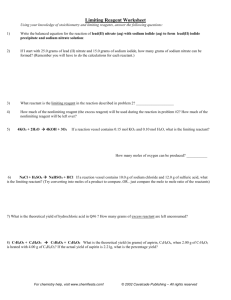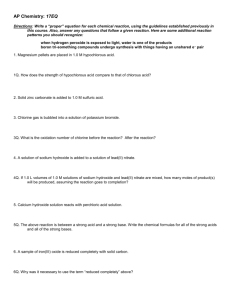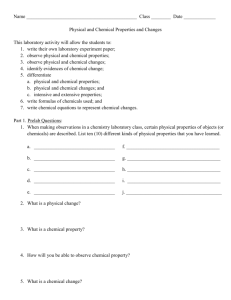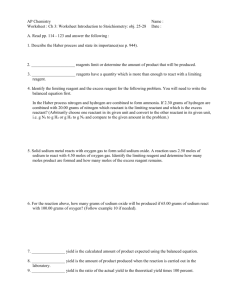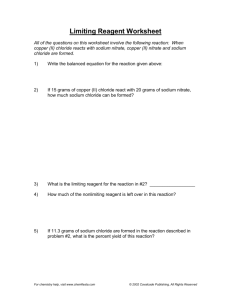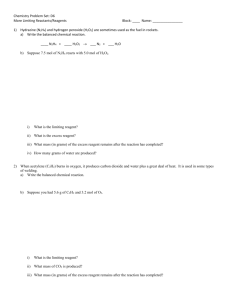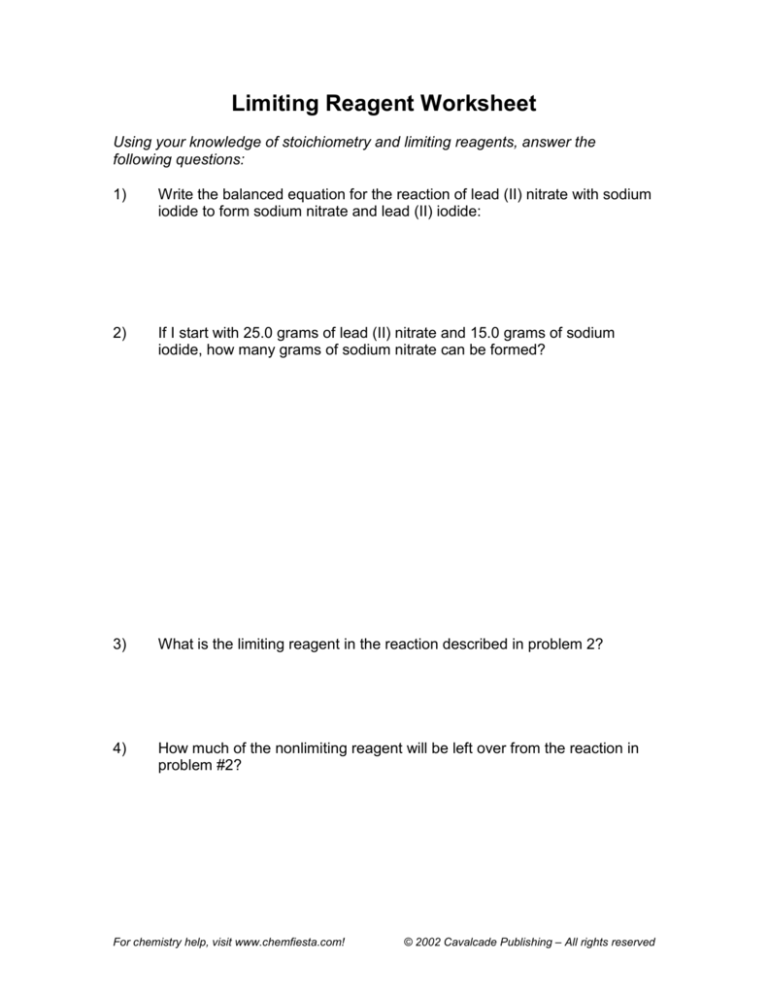
Limiting Reagent Worksheet
Using your knowledge of stoichiometry and limiting reagents, answer the
following questions:
1)
Write the balanced equation for the reaction of lead (II) nitrate with sodium
iodide to form sodium nitrate and lead (II) iodide:
2)
If I start with 25.0 grams of lead (II) nitrate and 15.0 grams of sodium
iodide, how many grams of sodium nitrate can be formed?
3)
What is the limiting reagent in the reaction described in problem 2?
4)
How much of the nonlimiting reagent will be left over from the reaction in
problem #2?
For chemistry help, visit www.chemfiesta.com!
© 2002 Cavalcade Publishing – All rights reserved
Limiting Reagent Worksheet - Solutions
Using your knowledge of stoichiometry and limiting reagents, answer the
following questions:
1)
Write the balanced equation for the reaction of lead (II) nitrate with sodium
iodide to form sodium nitrate and lead (II) iodide:
Pb(NO3)2 (aq) + 2 NaI (aq) PbI2 (s) + 2 NaNO3 (aq)
2)
If I start with 25.0 grams of lead (II) nitrate and 15.0 grams of sodium
iodide, how many grams of sodium nitrate can be formed?
To solve, the students should do two calculations. In the first, they’ll
determine the quantity of sodium nitrate that can be formed with 25
grams of lead (II) nitrate, assuming that there’s plenty of sodium
iodide present to react with it – their calculation should indicate that
12.8 grams of sodium nitrate can be formed.
Likewise, they should do a calculation in which they determine the
quantity of sodium nitrate that can be formed with 15 grams of
sodium iodide. Their calculation should find that 8.51 grams of
sodium nitrate can be formed.
Since the smallest of the two answers is 8.51 grams, this is the
quantity of sodium nitrate that will actually be formed in this
reaction.
3)
What is the limiting reagent in the reaction described in problem 2?
Because sodium iodide is the reagent that causes 8.51 grams of
sodium nitrate to be formed, it is the limiting reagent.
4)
How much of the nonlimiting reagent will be left over from the reaction in
problem #2?
By doing a stoichiometry calculation to determine the amount of lead
(II) nitrate required to form 8.51 grams of sodium nitrate, students
should determine that there are 8.38 grams of lead (II) nitrate
remaining.
For chemistry help, visit www.chemfiesta.com!
© 2002 Cavalcade Publishing – All rights reserved

